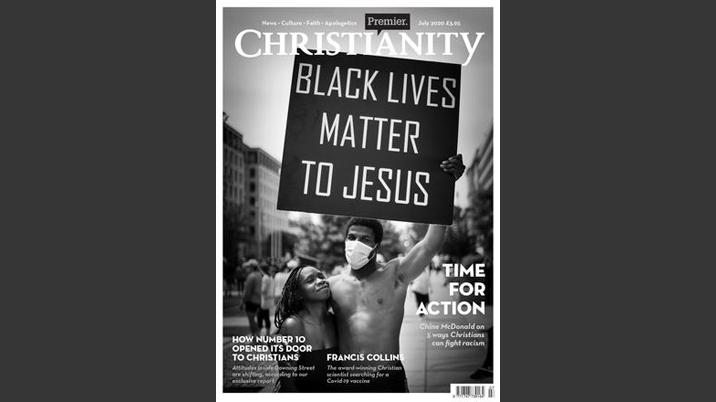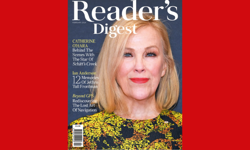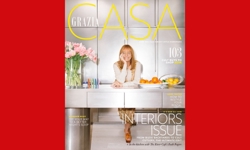
“The vast majority of our readership are protestants rather than Catholics, and the magazine has come from a largely evangelical heritage,” Hailes explains.
“What that means is, you’ve got Christians of a lot of denominations who read the magazine, not all of whom identify as evangelical – Anglicans, Methodists, Free Church, Newfrontiers, Vineyard, Baptist – almost any protestant denomination you can name.
“Very often, our readers are very involved in their local church. But the reason they pick up the magazine once a month is to find out what else is going on and what they can learn from other Christians. And that’s a really exciting readership to have – a readership very open to ideas outside their own church.”
Hailes has been editor of Premier Christianity – owned by Premier Media Group, which also has three Christian radio stations and two other Christian magazines – since January 2018, having worked his way up from junior reporter in just three years.
Trained as a journalist at Southampton’s Solent University, he said he didn’t set out to work in religious media but, as a Christian, early on in his studies realised it might make good sense.

“At university, they recommended us as journalists to have a specialist subject because the industry is so competitive and having one or two areas you know a lot about will stand you in good stead,” he recalls.
While many of his male contemporaries set their sights on sports reporting or music journalism, Hailes looked closer to home by deciding to capitalise on the fact he was a Christian and interested in theology.
On graduating, he started out by freelancing – again, not the plan.
“But Solent was superb at giving you world experience – you couldn’t graduate without having done some weeks of work experience, which was built into the course,” he explains.
“And I remember a guest lecturer in year two telling us you should start paying off your loan by freelancing now. I thought, if I can freelance in years two and three, that can only be a good thing.”
With enough contacts to freelance two days a week on graduation, Hailes took a part-time job working in a call centre for the other three until the journalism became fully sustainable. He then bided his time, applying for a number jobs at Premier Christianity, which he felt was the best title in its market, until “they eventually let me in”.
As deputy editor under Justin Brierley – the magazine’s former editor, who he went on to succeed – Hailes shared and has subsequently continued the vision in place for the title: to embrace difference, champion unity and to gently broaden its appeal to a younger readership while continuing to serve its committed fifty and sixty something readership.
To this end, attention now is on a significant overhaul of Premier Christianity’s website – and a digital launch in the UK, which will see the print title also available as a digital-only subscription for the first time – in coming months.
“Getting the better infrastructure in place to get a better-looking website and a better back end, to launch on tablets is hopefully going to happen early next year, so there’s a lot of work to do,” Hailes explains.
“But in the future, you’ll be able to subscribe just to the digital magazine if you want to, which at the moment for various reasons you can’t do. And that will be very good for us.” And popular, too, with younger readers.
We’re quite different from other Christian magazines as we don’t just talk about churchy things.
In search of unity
“For me, a really important concept of Christianity is Christian unity. You can say, I might go to a different church or have a different theological view, but there are fundamentals that can bring us together as Christians – things we can all agree on,” he continues.
“The magazine has an opportunity to build unity and say to our readers – who definitely do not always agree with one another, and there are things in the magazine I wouldn’t always agree with – well, actually, there is something much deeper than all of us that brings us together, and we can learn from each other as Christians.”
Focus has been on ensuring Christian denominations from across the spectrum have their voices heard and, also, reflecting on wider happenings and events. “I think we’re quite different from other Christian magazines as we don’t just talk about churchy things,” Hailes says.
“We reviewed the latest series of Stranger Things. When Star Wars got a reboot, we did a cover story on that. Derren Brown has been on the front cover, even though he is an atheist. We don’t just preach to the converted, so to speak.”
In recent months, Premier Christianity’s coverage of Black Lives Matter – and how ‘Black Lives Matter to Jesus’, to borrow from the image on its cover in July – is a powerful example of this. The edition was one of its most popular in recent years.
“We are not a campaigning magazine – that’s not really our style. But on this issue, I thought if we as Christians can’t take a stance against racism then we might as well give up and go home now,” he says, stressing that internally, renewed focus is now on strengthening its own track record on diversity and inclusivity.
Hailes adds firmly: “Racism is not an issue Christians can agree to disagree on.”

You can hear Sam Hailes being interviewed by Ciar Byrne on a recent episode of The InPublishing Podcast, which was sponsored by Acorn Web Offset, the Yorkshire-based specialist A5 and A4 magazine printer.
This article was first published in InPublishing magazine. If you would like to be added to the free mailing list, please register here.












